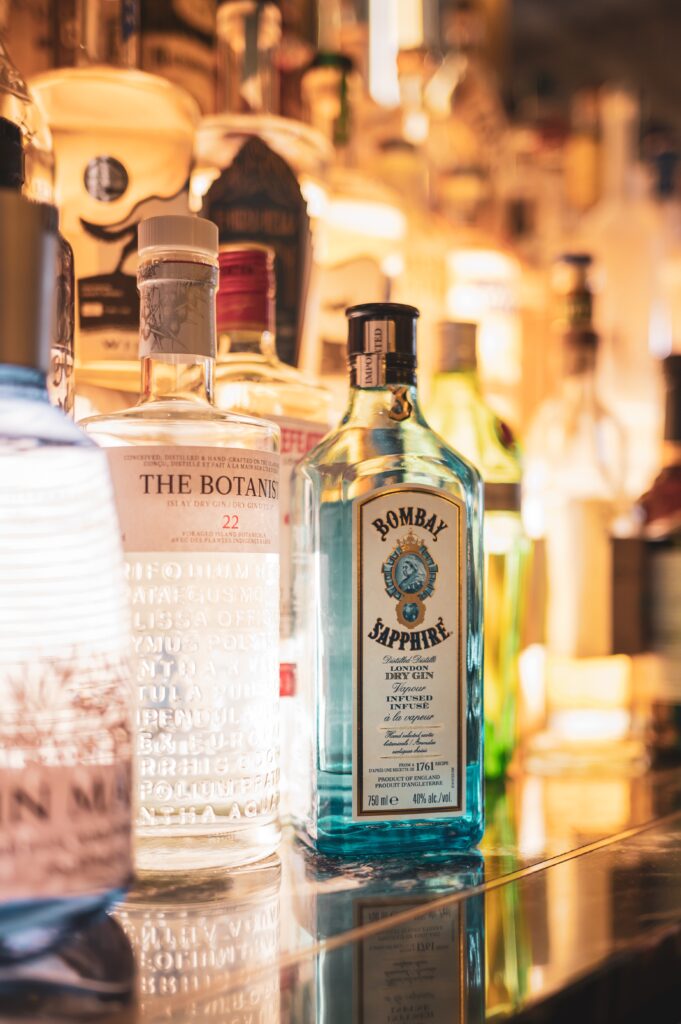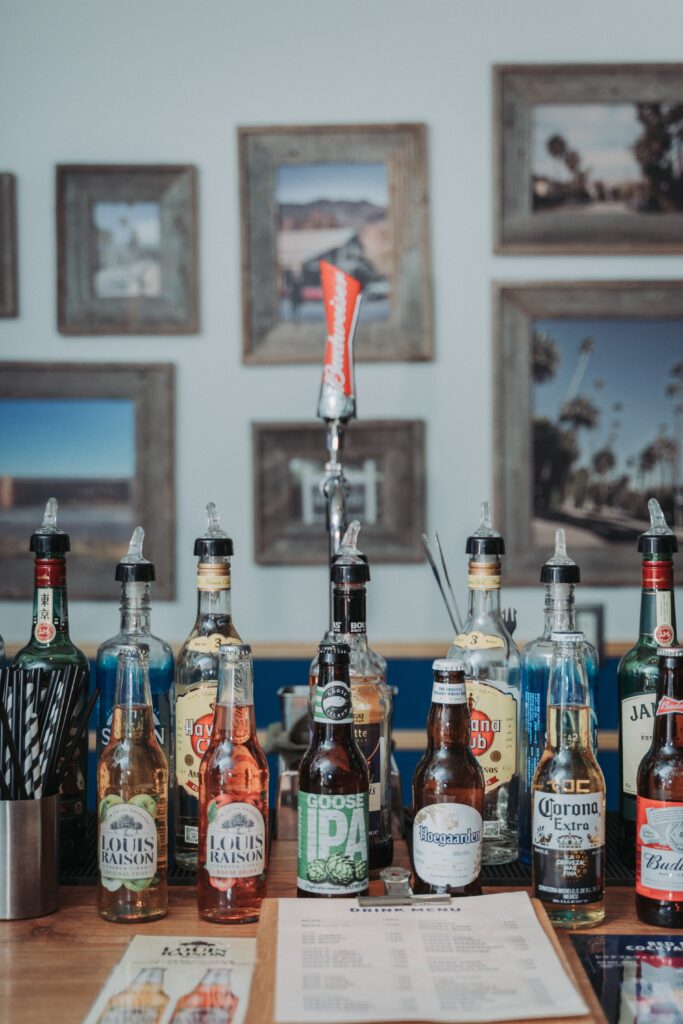
Imagine this scenario: you’re out on a promising date with someone you’ve been eager to get to know. The conversation is flowing smoothly, laughter fills the air, and everything seems perfect…until you notice that your date is knocking back one drink after another. As the night progresses, their once-charming tipsy demeanor transforms into a full-blown drunken haze. Panic sets in as you wonder, “How do I handle a date who drinks too much?”
In this article, we’ll explore effective strategies for navigating this sensitive situation with grace and tact. From gentle interventions to setting boundaries, we’ll provide you with practical tips and insights to ensure your well-being and enhance your connection. With our guidance, you’ll feel empowered to handle this challenging scenario in a way that protects your own boundaries while maintaining respect for your date.
Learn How to Get Ready For your Date Right Here!
Setting Boundaries
Determining your personal boundaries
When it comes to dealing with a date who drinks too much, it’s important to establish your personal boundaries. Take some time to reflect on what you are comfortable with and what crosses the line for you. Consider your own values, beliefs, and limits regarding alcohol consumption. Think about the kind of behavior you find acceptable and the behaviors that make you feel uncomfortable or unsafe. Knowing and understanding your personal boundaries will help you navigate the situation more effectively.
Clearly communicating your boundaries
Once you have determined your boundaries, it is crucial to communicate them to your date clearly and directly. Do not assume that they know exactly how you feel or what your limits are. Open and honest communication is key in any relationship, including dating. Clearly state what you are comfortable with and what is not acceptable to you. Use “I” statements to express your feelings and make it about your own boundaries rather than criticizing or accusing your date. This approach will ensure that your message is received in a non-confrontational and respectful manner.
Establishing consequences for crossing boundaries
In addition to communicating your boundaries, it is important to establish consequences for crossing those boundaries. Consequences provide a framework for accountability and reinforce the importance of respecting your boundaries. Make it clear to your date that if they continuously disregard your boundaries, there will be repercussions. These consequences can range from ending the date early to taking a break from seeing each other. The key is to set boundaries with consequences that are meaningful to you and maintain consistency in enforcing them.
Recognizing the Signs of Excessive Drinking
Observing physical signs
Recognizing the signs of excessive drinking can help you identify when your date has crossed their limits. Look for physical signs such as slurred speech, unsteady gait, bloodshot eyes, and the smell of alcohol on their breath or person. These signs may indicate that they have consumed more alcohol than is advisable or safe. It is important to trust your observations and take them into consideration when assessing the situation.
Noticing behavioral changes
Aside from physical signs, pay attention to any behavioral changes that occur as a result of excessive drinking. This could include becoming overly loud or obnoxious, being argumentative or confrontational, or displaying a lack of coordination and impaired motor skills. Changes in behavior can be indicators of alcohol impairment and can be a cause for concern, especially if they deviate significantly from your date’s usual demeanor.
Identifying patterns of excessive drinking
Another important factor to consider is the presence of recurring patterns of excessive drinking. If you notice that your date consistently consumes large amounts of alcohol or engages in binge drinking, it may indicate a deeper issue with alcohol abuse or dependency. Identifying these patterns can help you understand the severity of the situation and guide your decision-making moving forward.

Learn How to Get Ready For your Date Right Here!
Addressing the Issue During the Date
Finding an appropriate moment to talk
Bringing up the issue of excessive drinking during a date can be delicate, so it’s important to find the right moment to initiate the conversation. Pick a time when both of you are relatively calm and there are no distractions or time constraints. Avoid discussing the issue in public places or in the presence of others, as it may cause embarrassment or defensiveness. Choose an environment where both of you can feel comfortable and have a private conversation.
Expressing your concerns and observations
When discussing your concerns about your date’s excessive drinking, it is crucial to use a non-confrontational approach. Begin by expressing your genuine care for their well-being and your interest in their happiness. Be specific about the observations you have made regarding their drinking habits and how it has impacted your experience on the date. Use “I” statements to avoid sounding accusatory and focus on how their behavior makes you feel rather than attacking them personally.
Listening to their perspective
After expressing your concerns, it is important to give your date the opportunity to share their perspective. Listening actively and empathetically can foster understanding and build a stronger connection. Encourage them to be open and honest about their feelings and experiences with alcohol. Avoid interrupting or passing judgment prematurely. By showing genuine interest and respect for their point of view, you can create a safe and supportive space for open communication.
Suggesting alternative activities
If excessive drinking is a recurring issue, suggest alternative activities that do not involve alcohol. Explore shared interests and hobbies that can be enjoyed without relying on alcohol as a focal point. This shift in focus can not only help provide a healthier and more enjoyable date experience but also encourage your date to explore new ways of having fun and connecting with others.
Encouraging moderation
While it is important to address the issue of excessive drinking, it is also important to encourage moderation rather than abstinence. Understand that everyone has different relationships with alcohol, and completely abstaining may not be the answer for everyone. Encourage your date to practice responsible drinking by setting limits, pacing themselves, and being aware of the potential consequences of excessive alcohol consumption. Emphasize the importance of taking care of their own well-being and making informed decisions about their alcohol consumption.
Seeking Outside Help
Considering professional intervention
If your date’s excessive drinking continues to be a problem despite your efforts to address it, it may be necessary to seek professional help. Encourage your date to consider therapy or counseling, as professionals can provide guidance and support in overcoming alcohol-related issues. A trained therapist can help your date explore the underlying reasons for their excessive drinking and develop healthier coping mechanisms.
Reaching out to mutual friends for support
If you and your date share mutual friends who have noticed their excessive drinking, consider reaching out to them for support. Share your concerns with these friends and ask for their insight and perspective. It can be helpful to have a support system that understands the situation and can offer guidance on how to navigate the challenges that arise with excessive drinking.
Encouraging them to seek help themselves
While you can provide support and encouragement, ultimately, your date must take responsibility for seeking help themselves. Be respectful of their autonomy and avoid pressuring or forcing them into seeking help if they are not ready or willing to do so. However, continue to express your concern and remind them that professional help is available whenever they feel ready to take that step.

Ensuring Their Safety
Monitoring their alcohol consumption
If you choose to continue dating someone who drinks excessively, it is important to monitor their alcohol consumption and be aware of their limits. Encourage them to drink responsibly and be cognizant of their well-being. However, it is essential to remember that you are not responsible for their actions and that they ultimately have control over their own choices.
Offering to be the designated driver
Taking on the role of the designated driver can help ensure your date’s safety and reduce the risks associated with drinking excessively. By offering to drive them home or providing transportation, you can remove the temptation for them to drive under the influence and help prevent potentially dangerous situations.
Helping them make informed decisions
Education plays a crucial role in promoting responsible drinking and ensuring the safety of your date. Provide them with information about the potential risks and consequences of excessive drinking, as well as resources for responsible drinking practices. Empower them to make informed decisions about their alcohol consumption by equipping them with knowledge and encouraging them to prioritize their well-being.
Avoiding Enablement
Recognizing the difference between supporting and enabling
Supporting someone with excessive drinking involves helping them in healthy and constructive ways that encourage positive change. Enabling, on the other hand, involves inadvertently facilitating or condoning their excessive drinking behavior. It is important to recognize this distinction and ensure that your actions align with supporting their well-being instead of enabling their destructive habits.
Setting limits on your own involvement
To avoid enabling your date’s excessive drinking, it is important to set limits on your own involvement. Be clear about what you are willing and unwilling to tolerate regarding their behavior. Communicate these boundaries to your date and enforce them consistently. By setting limits, you ensure that you do not enable their excessive drinking by condoning or accepting it without consequences.
Avoiding covering up or making excuses for their behavior
Enablers often find themselves making excuses or covering up the consequences of someone’s excessive drinking. Avoid falling into this pattern by refusing to cover up or make excuses for their behavior. Encourage your date to take responsibility for their actions and face the consequences of their excessive drinking. By holding them accountable for their behavior, you can help motivate them to seek help and make positive changes.

Protecting Your Own Well-being
Prioritizing your mental and physical health
While it is important to show empathy and support to your date, it should not come at the expense of your own mental and physical health. Prioritize self-care and take time for yourself to recharge and decompress. Engage in activities that bring you joy, nurture your well-being, and help you maintain a healthy perspective in the midst of dealing with a difficult situation.
Recognizing any codependent tendencies
Codependency is a common struggle for individuals involved with someone who has an alcohol problem. Be honest with yourself and recognize if you are developing codependent tendencies. Codependency involves an unhealthy reliance on the other person’s alcohol abuse and feeling responsible for their well-being. If you notice signs of codependency, seek support from a therapist or counselor who can help you navigate your own emotions and develop healthier coping mechanisms.
Seeking professional help if necessary
If you find that the impact of dealing with your date’s excessive drinking is overwhelming and affecting your overall well-being, do not hesitate to seek professional help. A therapist or counselor can provide guidance and support as you navigate the challenges of the situation. They can help you develop coping strategies, explore your own emotions, and find healthy ways to manage the dynamics of the relationship.
Dealing with Repeated Occurrences
Evaluating the relationship
If your date continues to engage in excessive drinking despite your efforts to address the issue, it may be necessary to evaluate the overall health of the relationship. Consider whether their behavior aligns with your values and long-term goals. The repeated occurrence of excessive drinking may be an indication of deeper compatibility issues that need to be addressed.
Having an open and honest conversation
Conducting an open and honest conversation about the repeated occurrences of excessive drinking is essential for the health of the relationship. Express your concerns, feelings, and observations without judgment or blame. Allow your date to share their perspective, but also emphasize the importance of taking the situation seriously and finding a resolution that respects both parties’ boundaries and well-being.
Considering a break or separation if needed
If the repeated occurrences of excessive drinking continue to negatively impact the relationship and compromise your own well-being, it may be necessary to consider a break or even a separation. While this decision is deeply personal and should be based on your own values and circumstances, it is important to prioritize your own happiness and safety. Remember that you deserve to be in a healthy and supportive relationship.

Supporting their Recovery
Encouraging them to seek professional help
If your date shows a genuine desire to address their excessive drinking, encourage them to seek professional help. Professional interventions, such as therapy or counseling, can provide the necessary support, guidance, and tools to overcome alcohol-related issues. Offer to accompany them to appointments or help them find suitable resources in the community.
Suggesting support groups or therapy
In addition to professional help, suggest support groups or therapy as additional avenues for recovery. Alcoholics Anonymous (AA) and other support groups provide a safe and non-judgmental environment for individuals struggling with alcohol abuse. Individual or group therapy sessions can also help your date explore the root causes of their excessive drinking and develop healthier coping strategies.
Providing emotional support and understanding
Supporting someone’s recovery journey involves providing emotional support and understanding. Offer a listening ear and encourage open and honest communication. Understand that recovery is a process with ups and downs, and be patient with their progress. Celebrate small victories and acknowledge their efforts to make positive changes. By being a supportive presence in their life, you can play a meaningful role in their recovery.
Deciding to End the Relationship
Assessing the impact on your own life
When considering whether to end the relationship, it is crucial to assess the impact it has on your own life. Evaluate whether the excessive drinking has become a detriment to your own well-being and happiness. It’s important to remember that you cannot change someone or force them to address their drinking issues. Sometimes the best decision for both parties involved is to end the relationship and prioritize your own personal growth and happiness.
Recognizing when their behavior becomes detrimental
If your date’s excessive drinking continues despite your support and efforts to address the issue, and it becomes increasingly detrimental to your well-being and overall happiness, it may be time to recognize that the relationship is no longer healthy for you. Acknowledge that you deserve to be in a relationship where both parties prioritize each other’s well-being, growth, and happiness.
Making a responsible and informed decision
When making the decision to end the relationship, it is important to approach it with responsibility and thoughtfulness. Consider the impact on both parties involved and seek closure in a respectful manner. It may be helpful to seek guidance from a therapist or counselor during this process to navigate your own emotions and ensure that you are making an informed decision that aligns with your own values and well-being.
In conclusion, dealing with a date who drinks too much can be challenging, but it is essential to prioritize your own well-being and establish clear boundaries. Communicate your concerns and observations with empathy, encourage responsible drinking, and provide support while recognizing the importance of professional help when necessary. Remember that you have the right to make decisions that align with your own values and happiness.




